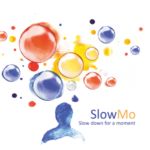
In her debut blog, Annabel Walsh summarises her #ActiveIngredientsMH project which explored the use of remote measurement technologies for depression in children and young people.
[read the full story...]
In her debut blog, Annabel Walsh summarises her #ActiveIngredientsMH project which explored the use of remote measurement technologies for depression in children and young people.
[read the full story...]
Imogen Bell blogs about a recent randomised controlled trial of the SlowMo app, which aimed to slow down thinking patterns and correct interpretation biases in people experiencing paranoia.
[read the full story...]
Douglas Badenoch helps us prepare for another CAMHS Around the Campfire session by tuning into the real effect of smartphone use on parenting; a multiverse analysis carried out by Kathryn L. Modecki and colleagues from Griffith University in Queensland, Australia.
Follow #CAMHScampfire on Twitter at 9.30am BST on Wednesday 23rd June for an online journal club discussing this paper. Or sign up now to join the free webinar hosted by ACAMH.
[read the full story...]
A group of UCL Mental Health MSc students summarise a recent pilot study, which explores the acceptability and feasibility of the Texting for Relapse Prevention (T4RP) programme for people with schizophrenia or schizoaffective disorder.
[read the full story...]
Bethany Gill summarises a recent narrative review of mental health apps for depression and anxiety, which explores what’s needed to make sure apps are successfully implemented and used sustainably.
[read the full story...]
In his debut blog, Stephen Schueller critiques a study of ‘user-adjusted’ analyses, which aims to describe the content of mental health apps that are actually reaching people.
[read the full story...]
In her debut blog, Rosa Pitts summarises the ARIES trial, which suggests it may be feasible to use a smartphone app (My Journey 3) to help prevent relapse in psychosis, although questions remain about long-term participant engagement with the app.
[read the full story...]
Lucinda Powell explores a recent systematic review and meta-analysis which finds that problematic smartphone use in young people is associated with poorer mental health.
[read the full story...]
Georgie Parker reviews a qualitative analysis of Reddit comments relating to the use of MyFitnessPal and its impact on eating disorder behaviours.
[read the full story...]
Imogen Bell blogs a timely systematic review which compares the interactional qualities of psychological therapy delivered face-to-face and over the telephone.
[read the full story...]